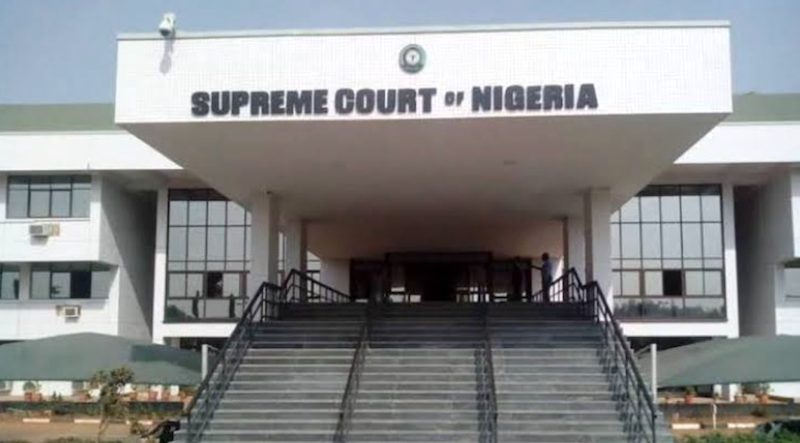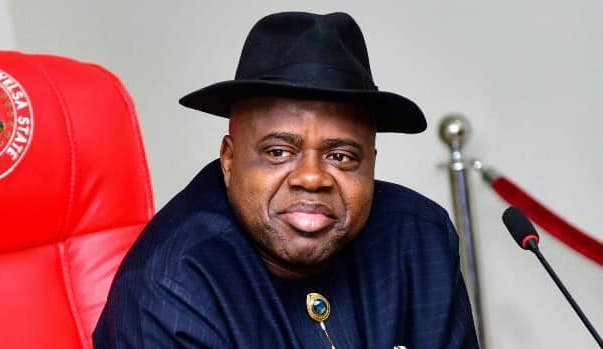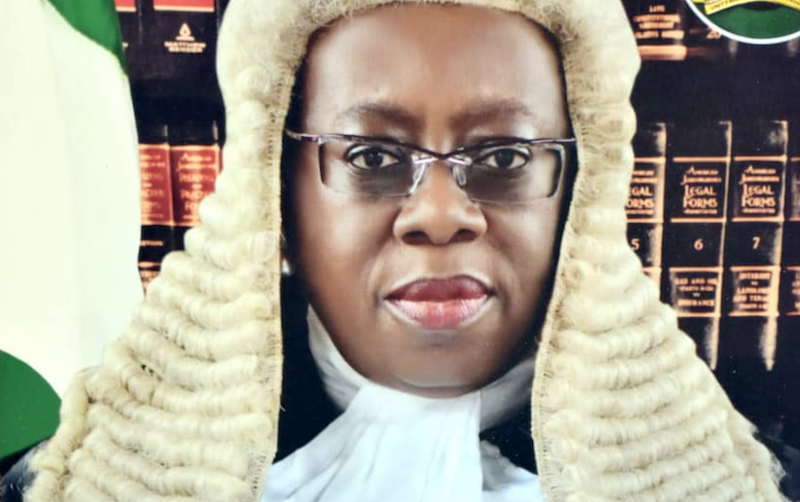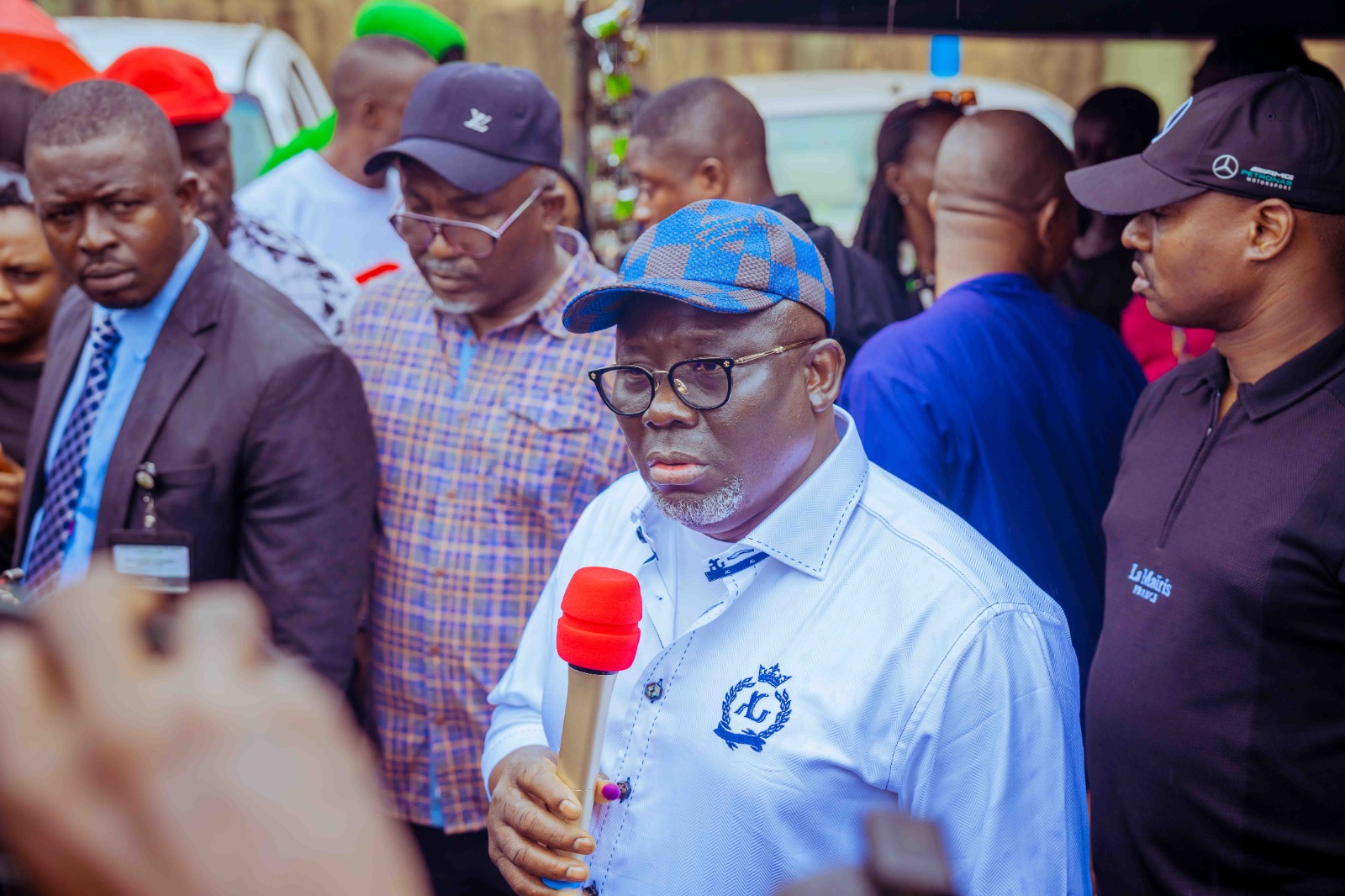The Supreme Court on Friday, affirmed the re-election of Hope Uzodimma of Imo in the Nov. 11, 2023 governorship election.
A five-member panel of the apex court, in a lead judgment delivered by Justice Mohammed Idris, dismissed the appeal filed by the Peoples Democratic Party (PDP) and its governorship candidate in Imo election, Samuel Anyanwu, for lacking in merit.
Justice Idris resolved all the issues raised for determination in the appeal against the appellants. Justice Idris equally dismissed the appeal by the Labour Party (LP) and its candidate, Athan Achonu, for being unmeritorious.
The judge, who authored and read the lead judgment, resolved the three issues identified for determination against the appellants.
He found that the appellants as petitioners at the election tribunal, failed to prove their case as required.
He proceeded to affirm the judgment of the Court of Appeal, which upheld the decision of the Imo State Governorship Election Petition Tribunal, which dismissed the appellants’ petition.
The Court of Appeal, Abuja had, on July 16, dismissed the appeal filed by the PDP and Anyanwu, challenging the decision of the Imo State Governorship Election Petition Tribunal, which affirmed the election of Hope Uzodinma as the authentic governor of the state.
The three-member panel led by Justice Bitrus Sanga held that the appeal lacked merit having resolved all issues formulated against the appellants in the suit.
In the same vein, the appellate court also dismissed the appeal by the Labour Party and its candidate, Achonu Nneji, and that of the Allied Peoples Movement for also lacking in merit.
The appellants, who were dissatisfied with the election tribunal judgment, had approached the Court of Appeal on grounds that the Nov. 11, 2023 election, was invalid because of non-compliance with the provision of the Electoral Act.
The appellants also challenged Uzodimma’s qualification with an allegation that his West African Examination Certificate (WAEC) result was forged.
While delivering that judgment, the court of appeal held that the appellants in their appeal, failed to prove the allegation of non-compliance as alleged.
The panel also held that the appellants failed to prove that the governor submitted a forged certificate.
Supreme Court upholds Ododo’s election, dismisses Ajaka, Braimoh’s case
Similarly, the Supreme Court on Friday, affirmed the victory of Usman Ododo of the All Progressives Congress (APC) in the Nov. 11, 2023 governorship election held in Kogi.
A five-member panel of the apex court, in a judgment, held that the appeal by the Social Democratic Party (SDP) and its candidate, Muritala Ajaka, marked: SC/CV/654/2024 was without merit and proceeded to dismiss it.
The apex court also dismissed the appeal by the Action Alliance (AA) and its candidate in the Nov. 11, 2023 governorship election in Kogi, Olayinka Braimoh, seeking to void the victory of Gov. Ododo in the poll.
A five-member panel of the apex court, in a judgment delivered by Justice Sadiq Umar, held that the appeal by the SDP and Ajaka, marked: SC/CV/654/2024 was without merit and proceeded to dismiss it.
Justice Umar, who wrote and read the lead judgment, resolved all the three issues identified for determination in the appeal against the appellants.
In the same vein, the panel, in a unanimous judgment in the case marked: SC/CV/653/2024 filed by AA and Braimoh, held that the appeal was incompetent, the notice of appeal having been filed outside the 14 days allowed by law for the filing of such notice.
Justice Umar, who also read the lead judgment, held that since the preliminary objection filed against the competence of the appeal was meritorious, it was of no use for the panel to consider other issues raised in the appeal.
The judge proceeded to dismiss the appeal and awarded a cost of N5 million against the appellants and in favour of the respondents.
A three-member panel of the Appeal Court, in a unanimous judgement delivered by Justice Onyekachi Otisi on July 11, had upheld the decision of the Kogi State Governorship Election Petition Tribunal.
The appellate court held that the SDP and its governorship candidate, Ajaka, failed to prove the allegations contained in their appeal beyond reasonable doubt as required by law.
The court equally dismissed the appeals filed by the AA and Braimoh; and that of the Peoples Redemption Party (PRP) and its governorship candidate, Dr Abdullahi Bayawo, challenging Ododo’s victory.
Justice Otisi, while delivering judgment on SDP and Ajaka”s appeal, agreed with the election petition tribunal which sat in Abuja.
The judge said the tribunal was right to have expunged the evidence of the 1st prosecution witness (PW-1) called by the petitioners on the ground that the evidence tendered by the witness was a documentary hearsay.
She said witnesses, whether subpoenaed or normal, are supposed to front-load their witness statements on oath as required by law.
The judge held that the petitioners’ witnesses were incompetent because their statements did not accompany the petition in line with the electoral laws
She agreed with the tribunal that there were inconsistencies in the case of the appellants.
According to her, the allegation of forgery of document that Ododo submitted to the Independent National Electoral Commission (INEC) is a pre-election matter which is handled by the Federal High Court and not the tribunal.
The said action, Justice Otisi held, happened before the conduct of the Nov. 11, 2023 governorship election in the state and as such, cannot be legislated upon by the lower tribunal.
The judge also held that allegation of forgery of document ought to be proven beyond reasonable doubt.
Justice Otisi subsequently resolved all the issues raised in the appeal against the appellants.
The tribunal had, on May 27, affirmed the victory of Gov. Ododo of APC in the Nov. 11, 2023 Kogi governorship poll.
The three-member panel of justices, headed by Justice Ado Birnin-Kudu, held that the petition was bereft of substance and accordingly dismissed it.
The tribunal held that SDP and Ajaka failed to prove the allegations of over-voting and non-compliance with the Electoral Act, 2022 in the petition.
The panel, in a unanimous, decision held that all the witness evidence filed before it were incompetent and full of inconsistencies.
It also agreed with the submissions of the respondents that the allegations of forgery raised in the petition were pre-election matter, which ought to have been raised 14 days after the documents were submitted to INEC.
Kogi had, on Nov. 11, 2023, held its off-cycle election in which Ododo of the APC emerged winner, beating his closest rival, Ajaka of the SDP with a wide margin.
Unsatisfied with INEC’s declaration of Ododo as winner of the poll, Ajaka and his party dragged the electoral umpire, Ododo and APC to the tribunal as 1st to 3rd respondents respectively.






